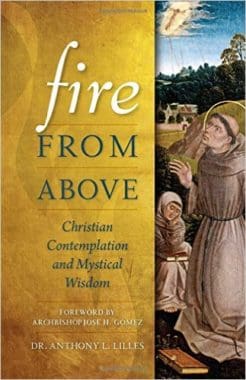Prayer is Not an Emptying of the Mind
Some argue that since God already knows our deepest needs, sharing these with Him is redundant. Instead of humble petition, some teachers suggest emptying the mind of everything. As rationality is abandoned, they propose that the mind can evolve beyond limiting structures.
For them, catechesis and the teaching of the Church are a helpful stepping-stone, but the impulse of the mind toward nothingness will take a soul into a more enlightened consciousness. They believe that divine revelation is not important in itself but only as a helpful form to get started. They recommend simply getting in touch with the impulse of will toward the Absolute. In this deliberate silencing of all thoughts and desires, they promise that reason and desire can be surmounted, and they advocate a plunge into mystery that is beyond a personal experience of the divine.
Some mystics use language that sounds like what these teachers propose, but they do not adhere to this vision of prayer. No saintly authority proposes that the Trinity is only the appearance of God for Christians. Their vision of prayer is not the heart intending emptiness or an impulse to a nonpersonal absolute.
Christian mysticism is intrinsically relational. We are not isolated monads whose mere intention is to have power to shape the world or even our lives. The alienation of sin and death does not define our existence. Our prayer is not closed in on its own intentions and impulses because Christ crucified has gained access to our hearts and suffered their truth. He opens up access to God for our whole embodied spirit — from the heights of our rationality and the depths of our affectivity, from the furthest bodily extremity to the very substance of the soul.
Before the Cross, mere intention and impulse are not enough. A more complete and more human total response is required. The Cross is where the love of the Father and the prayers of humanity collide — and Christian prayer is all about this love as a lived reality. It is a reality lived in relationship, in connection with God and those the Lord gives us. In the image and likeness of the Trinity, we are beings “in relation” to one another and to God — and the power of reason is ordered to these personal relations and the divine harmony God alone can establish in them.
Although it is true that holy desires move us to pray, prayer itself extends beyond desire and engages all the powers of our soul, purifying them and expanding them beyond all expectation. In this way, prayer is the highest and noblest of all human activities, the activity that involves the free engagement of the highest functions of our intelligence to their fullest potential and this on the most important, most vital matters of existence.
In God’s eyes, one human thought, filled with faith, is worth more than the whole tangible world. This is because prayer is in a special way an act of grace-permeated reason. In this healed and expanded rational power, humble human thought is raised into the mind of God by the Word of the Father and set on fire by the gift of the Holy Spirit.
Through reason raised in prayer, God brings both the soul and the world into harmony with His divine plan. In prayer that is worthy of God, human reason participates with Divine Reason, the Word of the Father. A humble word can be a powerful thing if said in the right way, at the right time, to the right person and for the right reason. This is because a word, even in frail human speech, mediates truth; it has the power to convey the truth with love. In prayer, this mediation accesses the mystery of God Himself, and He uses it to bring to completion His great purpose.
+
This article is from a chapter in Fire from Above, which is available through Sophia Institute Press.
Art: Detail of The Virgin in Prayer by Giovanni Battista Salvi da Sassoferrato, between 1640 and 1650, National Gallery, London, United Kingdom, PD-US author’s life plus 100 years or less, Wikimedia Commons. Cover of Fire from Above, used with permission. Cover of Fire from Above, used with permission.





